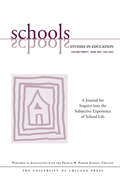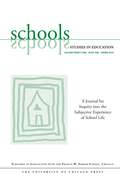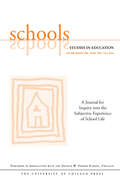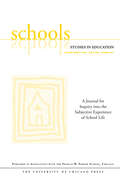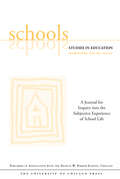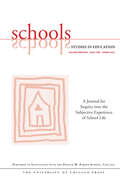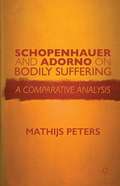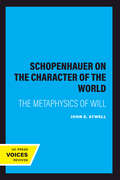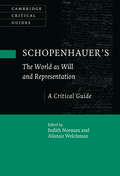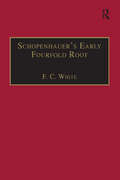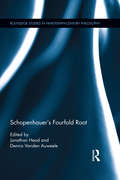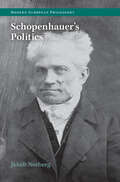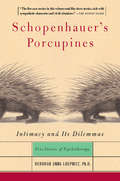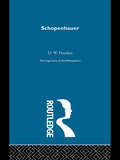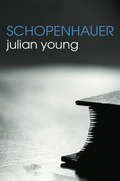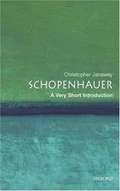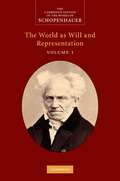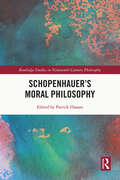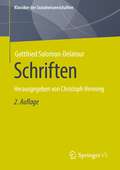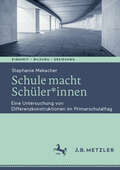- Table View
- List View
Schools, volume 20 number 2 (Fall 2023)
by SchoolsThis is volume 20 issue 2 of Schools. Schools: Studies in Education provides a forum for classroom educators to describe and meditate on the complex experiences of school life. The journal publishes scholarly articles, reflective essays, and stories that convey how human relationships, thoughts, and emotions shape the meaning of what happens when learning actually occurs. Historical documents in “From the Archives” feature intriguing excerpts from works that provide insight into contemporary issues. Opinion pieces in “On the Horizon” feature arguments about the future of education planning and policy. Reviews critically evaluate books, films, art exhibitions, concerts, and other events that have some bearing on the meaning and value of education.
Schools, volume 21 number 1 (Spring 2024)
by SchoolsThis is volume 21 issue 1 of Schools. Schools: Studies in Education provides a forum for classroom educators to describe and meditate on the complex experiences of school life. The journal publishes scholarly articles, reflective essays, and stories that convey how human relationships, thoughts, and emotions shape the meaning of what happens when learning actually occurs. Historical documents in “From the Archives” feature intriguing excerpts from works that provide insight into contemporary issues. Opinion pieces in “On the Horizon” feature arguments about the future of education planning and policy. Reviews critically evaluate books, films, art exhibitions, concerts, and other events that have some bearing on the meaning and value of education.
Schools, volume 21 number 2 (Fall 2024)
by SchoolsThis is volume 21 issue 2 of Schools. Schools: Studies in Education provides a forum for classroom educators to describe and meditate on the complex experiences of school life. The journal publishes scholarly articles, reflective essays, and stories that convey how human relationships, thoughts, and emotions shape the meaning of what happens when learning actually occurs. Historical documents in “From the Archives” feature intriguing excerpts from works that provide insight into contemporary issues. Opinion pieces in “On the Horizon” feature arguments about the future of education planning and policy. Reviews critically evaluate books, films, art exhibitions, concerts, and other events that have some bearing on the meaning and value of education.
Schools, volume 22 number 1 (Spring 2025)
by SchoolsThis is volume 22 issue 1 of Schools. Schools: Studies in Education provides a forum for classroom educators to describe and meditate on the complex experiences of school life. The journal publishes scholarly articles, reflective essays, and stories that convey how human relationships, thoughts, and emotions shape the meaning of what happens when learning actually occurs. Historical documents in “From the Archives” feature intriguing excerpts from works that provide insight into contemporary issues. Opinion pieces in “On the Horizon” feature arguments about the future of education planning and policy. Reviews critically evaluate books, films, art exhibitions, concerts, and other events that have some bearing on the meaning and value of education.
Schools: Studies in Education, volume 18 number 2 (Fall 2021)
by Schools: Studies in EducationThis is volume 18 issue 2 of Schools: Studies in Education. Schools: Studies in Education provides a forum for classroom educators to describe and meditate on the complex experiences of school life. The journal publishes scholarly articles, reflective essays, and stories that convey how human relationships, thoughts, and emotions shape the meaning of what happens when learning actually occurs. Historical documents in “From the Archives” feature intriguing excerpts from works that provide insight into contemporary issues. Opinion pieces in “On the Horizon” feature arguments about the future of education planning and policy. Reviews critically evaluate books, films, art exhibitions, concerts, and other events that have some bearing on the meaning and value of education.
Schools: Studies in Education, volume 19 number 1 (Spring 2022)
by Schools: Studies in EducationThis is volume 19 issue 1 of Schools: Studies in Education. Schools: Studies in Education provides a forum for classroom educators to describe and meditate on the complex experiences of school life. The journal publishes scholarly articles, reflective essays, and stories that convey how human relationships, thoughts, and emotions shape the meaning of what happens when learning actually occurs. Historical documents in “From the Archives” feature intriguing excerpts from works that provide insight into contemporary issues. Opinion pieces in “On the Horizon” feature arguments about the future of education planning and policy. Reviews critically evaluate books, films, art exhibitions, concerts, and other events that have some bearing on the meaning and value of education.
Schopenhauer A Biography
by David E. CartwrightArthur Schopenhauer (1788-1860) was one of the most original and provocative thinkers of the nineteenth century. He spent a lifetime striving to understand the meaning of living in a world where suffering and death are ubiquitous. In his quest to solve "the ever-disquieting riddle of existence," Schopenhauer explored almost every dimension of human existence, developing a darkly compelling worldview that found deep resonance in contemporary literature, music, philosophy, and psychology. This is the first comprehensive biography of Schopenhauer written in English. Placing him in his historical and philosophical contexts, David E. Cartwright tells the story of Schopenhauer's life to convey the full range of his philosophy. He offers a fully documented portrait in which he explores Schopenhauer's fractured family life, his early formative influences, his critical loyalty to Kant, his personal interactions with Fichte and Goethe, his ambivalent relationship with Schelling, his contempt for Hegel, his struggle to make his philosophy known, and his reaction to his late-arriving fame. The Schopenhauer who emerges in this biography is the complex author of a philosophy that had a significant influence on figures as diverse as Samuel Beckett, Jorge Luis Borges, Emile Durkheim, Sigmund Freud, Thomas Hardy, Thomas Mann, Friedrich Nietzsche, and Ludwig Wittgenstein.
Schopenhauer and Adorno on Bodily Suffering
by Mathijs PetersPeters discusses Schopenhauer and Adorno, two philosophers whose writings have hitherto not been extensively compared in the English-speaking academic world. Focusing on their ideas about pain and bodily suffering, the author creates a stimulating tension between the ahistorical nature of Schopenhauer's philosophy and the deeply historical character of Adorno's critical analyses. He explores the common themes in their work, in that both have been accused of defending pessimistic theories, in which the notion of freedom disappears and is replaced by an emphasis on metaphysical and social determination. Without overlooking the differences between the two authors, Peters argues that Schopenhauer and Adorno's pessimism is intertwined with hopeful analyses of compassion with bodily suffering, the redeeming qualities of the arts, and descriptions of experiences of a metaphysical nature. His fascinating study enhances our understanding of Schopenhauer and Adorno and the former's influence on Critical Theory. It furthermore is a valuable contribution to our ideas about pessimism, optimism and social critique.
Schopenhauer and the Aesthetic Standpoint
by Sophia VasalouWith its pessimistic vision and bleak message of world-denial, it has often been difficult to know how to engage with Schopenhauer s philosophy. His arguments have seemed flawed and his doctrines marred by inconsistencies; his very pessimism almost too flamboyant to be believable. Yet a way of redrawing this engagement stands open, Sophia Vasalou argues, if we attend more closely to the visionary power of Schopenhauer s work. The aim of this book is to place the aesthetic character of Schopenhauer s standpoint at the heart of the way we read his philosophy and the way we answer the question: why read Schopenhauer - and how? Approaching his philosophy as an enactment of the sublime with a longer history in the ancient philosophical tradition, Vasalou provides a fresh way of assessing Schopenhauer s relevance in critical terms. This book will be valuable for students and scholars with an interest in post-Kantian philosophy and ancient ethics.
Schopenhauer on the Character of the World: The Metaphysics of Will
by John E. AtwellThe most extensive English-language study of Schopenhauer's metaphysics of the will yet published, this book represents a major contribution to Schopenhauer scholarship. Here, John E. Atwell critically but sympathetically examines the philosopher's main work, The World as Will and Representation, demonstrating that the philosophical system it puts forth does constitute a consistent whole. The author holds that this system is centered on a single thought, "The world is self-knowledge of the will." He then traces this unifying concept through the four books of The World as Will and Representation, and, in the process, dissolves the work's alleged inconsistencies.
Schopenhauer's 'The World as Will and Representation': A Critical Guide (Cambridge Critical Guides)
by Judith Norman Alistair WelchmanSchopenhauer's The World as Will and Representation is one of the central texts in the history of Western philosophy. It is one of the last monuments to the project of grand synthetic philosophical system-building, where a single, unified work could aim to clarify, resolve, and ground all the central questions of metaphysics, epistemology, ethics, religion, aesthetics and science. Poorly received at its initial publication, it soon became a powerful cultural force, inspiring not only philosophers but also artists, writers and musicians, and attracting a large popular audience of non-scholars. Perhaps equally importantly, Schopenhauer was one of the first European philosophers to take non-Western thought seriously and to treat it as a living tradition rather than as a mere object of study. This volume of new essays showcases the enormous variety of contemporary scholarship on this monumental text, as well as its enduring relevance.
Schopenhauer's Early Fourfold Root: Translation and Commentary (Avebury Series in Philosophy)
by F. C. WhiteSchopenhauer’s Early Fourfold Root constitutes a landmark in Schopenhaurian scholarship. It is a translation with concise commentary of Schopenhauer’s doctoral thesis as submitted to the University of Jena and published at Rudolstadt in 1813. In spite of the great and increasing interest in the writings of Schopenhauer in the English-speaking world, this work has never been translated before, and its long awaited appearance fills the only remaining gap in the philosophical works of Schopenhauer available to English-speaking readers. Schopenhauer’s thesis of 1813 is very different from the 1847 edition well known to English readers, and its appearance in translation will enable students and scholars alike to make sense of the development of Schopenhauer’s thought in a way that has been possible so far only to those at ease with Schopenhauer’s German. The translation, which keeps a fine balance between readability and philosophical accuracy, is accompanied by a commentary enabling students as well as established scholars to follow Schopenhauer’s thought with comparative ease.
Schopenhauer's Fourfold Root (Routledge Studies in Nineteenth-Century Philosophy)
by Dennis Vanden Auweele Jonathan HeadThis volume collects 12 essays by various contributors on the subject of the importance and influence of Schopenhauer’s doctoral dissertation (On the Fourfold Root of the Principle of Sufficient Reason) for both Schopenhauer’s more well-known philosophy and the ongoing discussion of the subject of the principle of sufficient reason. The contributions deal with the historical context of Schopenhauer’s reflections, their relationship to (transcendental) idealism, the insights they hold for Schopenhauer’s views of consciousness and sensation, and how they illuminate Schopenhauer’s theory of action. This is the first full-length, English volume on Schopenhauer’s Fourfold Root and its relevance for Schopenhauer’s philosophy. The thought-provoking essays collected in this volume will undoubtedly enrich the burgeoning field of Schopenhauer-studies.
Schopenhauer's Politics (Modern European Philosophy)
by Jakob NorbergArthur Schopenhauer (1788–1860) lived through an era of great political turmoil, but previous assessments of his political thought have portrayed him as a pessimistic observer with no constructive solutions to offer. By assembling and contextualizing Schopenhauer's dispersed comments on political matters, this book reveals that he developed a distinct conception of politics. In opposition to rising ideological movements such as nationalism or socialism, Schopenhauer denied that politics can ever bring about universal emancipation or fraternal unity. Instead, he viewed politics as a tool for mitigating rather than resolving the conflicts of a fundamentally imperfect world. Jakob Norberg's fascinating book reconstructs Schopenhauer's political ideas and shows how they relate to the dominant debates and trends during the period in which he lived. This title is also available as Open Access on Cambridge Core.
Schopenhauer's Porcupines: Intimacy and its Dilemmas
by Deborah Anna LuepnitzEach generation of therapists can boast of only a few writers like Deborah Luepnitz, whose sympathy and wit shine through a fine, luminous prose. In Schopenhauer's Porcupines she recounts five true stories from her practice, stories of patients who range from the super-rich to the homeless and who grapple with panic attacks, psychosomatic illness, marital despair, and sexual recklessness. Intimate, original, and triumphantly funny, Schopenhauer's Porcupines goes further than any other book in unveiling the secrets of "how talking helps. "
Schopenhauer-Arg Philosophers
by D.W. HamlynThis book is available either individually, or as part of the specially-priced Arguments of the Philosphers Collection.
Schopenhauer: A Study In The Philosophy Of Arthur Schopenhauer (The Routledge Philosophers)
by Julian YoungArthur Schopenhauer (1788-1860) was one of the greatest writers and German philosophers of the nineteenth century. His work influenced figures as diverse as Wagner, Freud and Nietzsche. Best known as a pessimist, he was one of the few philosophers read and admired by Wittgenstein.In this comprehensive introduction, Julian Young covers all the main aspects of Schopenhauer's philosophy. Beginning with an overview of Schopenhauer's life and work, he introduces the central aspects of his metaphysics fundamental to understanding his work as a whole: his philosophical idealism and debt to the philosophy of Kant; his attempt to answer the question of what the world is; his account of science; and in particular his idea that 'will' is the essence of all things.Julian Young then introduces and assesses Schopenhauer's aesthetics, which occupy a central place in his philosophy. He carefully examines Schopenhauer's theories of the sublime, artistic genius and music, before assessing his ethics of compassion, his arguments for pessimism and his account of 'salvation'. In the final chapter, he considers Schopenhauer's legacy and his influence on the thought of Nietzsche and Wittgenstein, making this an ideal starting point for those coming to Schopenhauer for the first time.
Schopenhauer: A Very Short Introduction
by Christopher JanawaySchopenhauer is considered to be the most readable of German philosophers. This book gives a succinct explanation of his metaphysical system, concentrating on the original aspects of his thought, which inspired many artists and thinkers including Nietzsche, Wagner, Freud, and Wittgenstein. Schopenhauer's central notion is that of the will--a blind, irrational force that he uses to interpret both the human mind and the whole of nature. Seeing human behavior as that of a natural organism governed by the will to life, Schopenhauer developed radical insights concerning the unconscious and sexuality which influenced both psychologists and philosophers
Schopenhauer: Short Philosophical Essays (The Cambridge Edition of the Works of Schopenhauer #2)
by Arthur Schopenhauer Christopher Janaway Adrian Del CaroWith the publication of Parerga and Paralipomena in 1851, there finally came some measure of the fame that Schopenhauer thought was his due. Described by Schopenhauer himself as 'incomparably more popular than everything up till now', Parerga is a miscellany of essays addressing themes that complement his work The World as Will and Representation, along with more divergent, speculative pieces. It includes essays on method, logic, the intellect, Kant, pantheism, natural science, religion, education, and language. The present volume offers a new translation, a substantial introduction explaining the context of the essays, and extensive editorial notes on the different published versions of the work. This readable and scholarly edition will be an essential reference for those studying Schopenhauer, the history of philosophy, and nineteenth-century German philosophy. Provides a new, up-to-date translation of this historically important collection of essays. The first English edition to be translated and edited by specialists in philosophy and German studies, and to give thorough scholarly notes on the differences between editions. Includes a scholarly introduction outlining the context of the works and a guide to reading them.
Schopenhauer: Volume 1
by Arthur Schopenhauer Christopher Janaway Judith Norman Alistair WelchmanFirst published in 1818, The World as Will and Representation contains Schopenhauer's entire philosophy, ranging through epistemology, metaphysics, philosophy of mind and action, aesthetics and philosophy of art, to ethics, the meaning of life and the philosophy of religion, in an attempt to account for the world in all its significant aspects. It gives a unique and influential account of what is and is not of value in existence, the striving and pain of the human condition and the possibility of deliverance from it. This new translation of the first volume of what later became a two-volume work reflects the eloquence and power of Schopenhauer's prose and renders philosophical terms accurately and consistently. It offers an introduction, glossary of names and bibliography, and succinct editorial notes, including notes on the revisions of the text which Schopenhauer made in 1844 and 1859.
Schopenhauer’s Moral Philosophy (Routledge Studies in Nineteenth-Century Philosophy)
by Patrick HassanThis volume brings together internationally recognised Schopenhauer scholars to develop new perspectives on his moral philosophy. Despite anticipating and engaging with many of the arguments now recognisable in Anglophone moral philosophy, Arthur Schopenhauer has often been overlooked as a potential contributor to contemporary discourse within this domain. Not only was he one of the most important 19th-century critics of Kantian deontology, Schopenhauer also developed a plausible moral system of his own grounded in compassion. While interesting parallels can be drawn between his system and the sentimentalist tradition familiar from the likes of Hume and Hutcheson, Schopenhauer’s idiosyncratic metaphysics provide a unique approach to standard questions in moral psychology, the philosophy of action, axiology, and moral epistemology. The chapters in this book draw out the relevance and influence of Schopenhauer’s ethical program, attempting to demonstrate the as yet untapped wealth of conceptual resources for pressing moral problems. They address a wide range of topics, including: the moral status of animals; the moral permissibility of suicide; the possibility of altruistic action; the nature of virtue and asceticism; how Schopenhauer integrated Western influences with various Indian traditions of moral thinking, and more. Schopenhauer’s Moral Philosophy will be of interest to scholars and advanced students interested in Schopenhauer, 19th-century philosophy, and the history of ethics.
Schriften der Frühzeit: Gesammelt und herausgegeben von Gustav Mayer (Klassiker der Sozialwissenschaften)
by Friedrich EngelsDer Band macht die frühen Schriften Friedrich Engels wieder zugänglich. Gesammelt und herausgegeben von Gustav Mayer.
Schriften: Herausgegeben von Christoph Henning (Klassiker der Sozialwissenschaften)
by Gottfried Salomon-DelatourGottfried Salomon-Delatour (1892-1964), ein heute fast vergessener Soziologe, promovierte 1916 bei Georg Simmel in Straßburg und war anschließend in Frankfurt Assistent von Franz Oppenheimer am ersten deutschen Lehrstuhl für Soziologie. In den 1920er Jahren war er als Herausgeber des „Jahrbuchs für Soziologie“ und Organisator der Davoser Hochschulkurse ferner mit fast allen Größen des Faches auch persönlich bekannt. Seit 1933 im Exil, war er weiter aktiv – auch politisch – und kehrte 1958 nach Frankfurt zurück. Er stellt ein Bindeglied zwischen seinen Lehrern Simmel und Oppenheimer einerseits und jüngeren Intellektuellen wie Benjamin und Adorno sowie den Studierenden der 1960er Jahre andererseits dar. Derzeit wird er auch als deutsch-französischer „Vermittler“ wiederentdeckt. Dieser Band macht einige seiner interessantesten Schriften erneut verfügbar. Darunter befinden sich einerseits einige „investigative“ Vorworte zu Herausgaben damals wenig bekannter internationaler „Klassiker“ der Soziologie und andererseits – neben Aufsätzen zu spezifisch jüdischen Themen – auch bewegende Dokumente aus seiner Zeit im Exil.
Schule macht Schüler*innen: Eine Untersuchung von Differenzkonstruktionen im Primarschulalltag (Kindheit – Bildung – Erziehung. Philosophische Perspektiven)
by Stephanie MekacherDerweil sich diverse erziehungswissenschaftliche Studien mit dem Thema der interaktiven Konstruktion und Bearbeitung von Differenzen in schulischen Kontexten auf der Eingangs- oder Sekundarstufe befassen, ist die Frage, wie Differenzen im Schulalltag der Primarstufe hervorgebracht und (re-)produziert werden, im Bildungsraum Schweiz bislang kaum erforscht worden. Die vorliegende Studie beleuchtet doing difference Prozesse und die damit verbundene (Re-)Produktion von sozialen Ordnungen bzw. Ungleichheiten im schulischen Alltag. Anhand einer ethnographischen Herangehensweise wird eruiert, inwiefern in der Unterrichtspraxis zweier beobachteten Primarschulklassen der Deutschschweiz soziale, gender- und klassenbezogenen Differenzen thematisiert, hervorgehoben oder neutralisiert werden. Aus einer ethnomethodologischen Perspektive wird aus den erhobenen Daten rekonstruiert, wie die schulischen Akteur*innen Abgrenzungs- und Zuschreibungsprozesse vornehmen und wie sich diese auf die Positionierung der Individuen im sozialen Gefüge der Schulklassen auswirken. Ausgezeichnet mit dem Fakultätspreis 2023 der philosophischen Fakultät der Université de Fribourg.
Schule und Transnationalisierung: Erziehungswissenschaftliche Verhältnisbestimmungen (Schule und Gesellschaft #66)
by Merle Hummrich Merle HinrichsenDas Buch bestimmt die Verhältnisse von Schule und Transnationalisierung angesichts globaler Migrations- und Fluchtbewegungen sowie vor dem Hintergrund zunehmender Internationalisierungs- und Digitalisierungsprozesse. Grenzüberschreitende Beziehungen und Verflechtungen von Schule und schulischen Akteuren sind in der Folge Bestandteil des schulischen Alltags. Mit Blick auf die Verknüpfung mit Bildung lassen sich zwei ungleichheitsrelevante Diskurse unterscheiden: Mobilität und Migration. Während Mobilität im Kontext Schule als erstrebenswerte Norm gilt, wird Migration vielfach als problematisch betrachtet.
